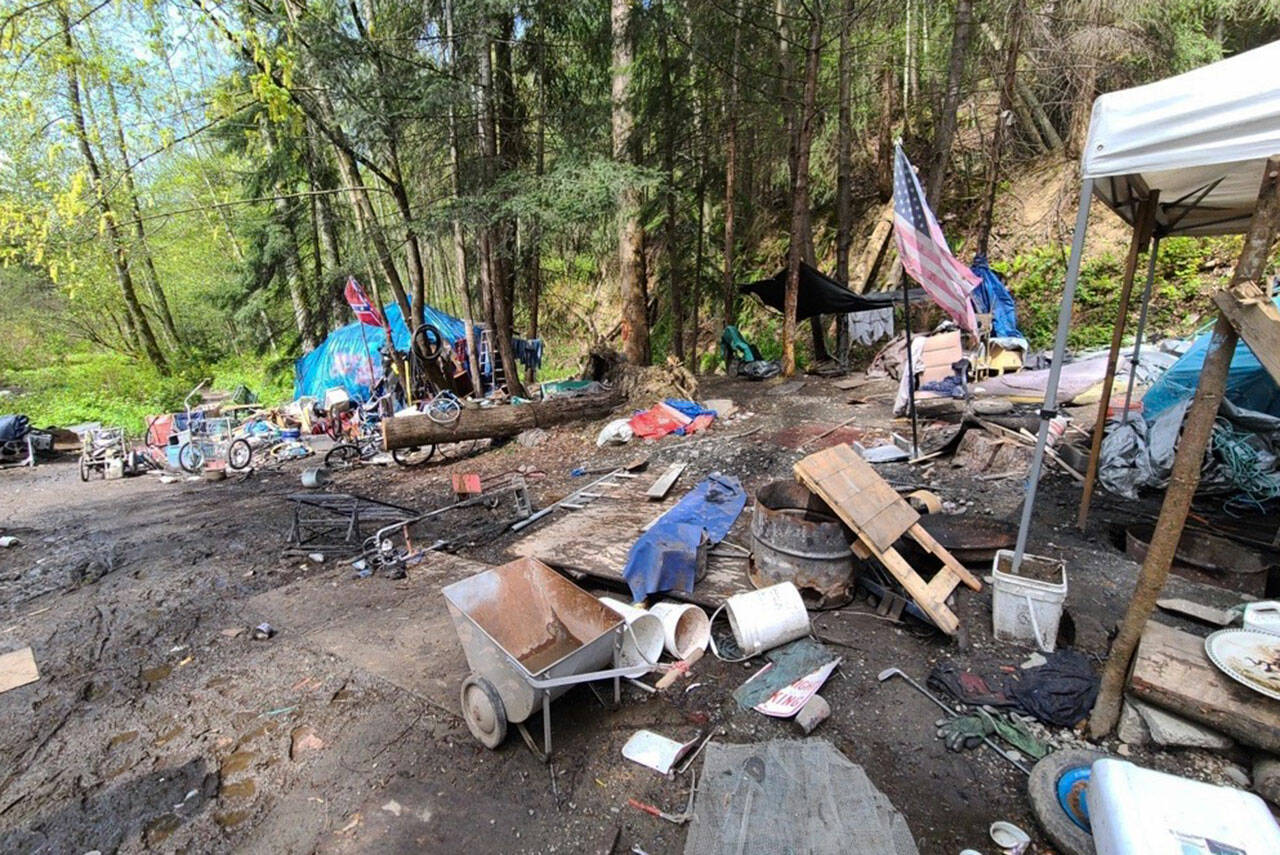The conservative majority of the U.S. Supreme Court has decided on another landmark case, making sleeping outside or camping overnight in a vehicle potentially illegal.
Decided on June 28 in a 6-3 decision, the Supreme Court legalized the criminalization of homelessness. The court argued that the prevention of criminalizing homelessness was detrimental to local governments’ effectiveness in dealing with the homelessness crisis and was fundamentally against the spirit of the Constitution and the 8th Amendment.
“Homelessness is complex. Its causes are many. So may be the public policy responses required to address it,” Supreme Court Justice Neil Gorsuch wrote in his majority opinion. “At bottom, the question this case presents is whether the Eighth Amendment grants federal judges primary responsibility for assessing those causes and devising those responses. It does not.”
This decision overruled the precedent set in Martin v. Boise. The U.S. Court of Appeals for the Ninth Circuit ruled that cities must allow public camping to those who are “involuntarily homeless.” The court ruled that banning homelessness violated the punishment clause of the 8th Amendment, constituting cruel and unusual punishment.
This ruling gave anyone without access to adequate shelter the right to sleep outside.
The new decision overturned that right and allowed criminal punishment for anyone sleeping in public, including parks, encampments, and one’s own car.
The Supreme Court ruled that the language of “involuntarily homeless” was needlessly complicated and resulted in local governments not having adequate solutions for homelessness.
“Under Martin, cities must allow public camping by those who are ‘involuntarily’ homeless. But how are city officials and law enforcement officers to know what it means to be ‘involuntarily’ homeless, or whether any particular person meets that standard?” Gorsuch wrote.
The court’s majority opinion believe that allowing criminalization will help the homelessness crisis, and they argued that the previous decision preventing criminalization had detrimental negative effects.
Additionally, Gorsuch argued the Martin decision directly led to local governments solely aiding temporary shelters instead of reinvesting in permanent solutions.
Opposition
Chief Justice Sonia Sotomayor argued against this opinion, saying that criminalization leads to a revolving door of homelessness and poverty: “Criminalizing homelessness can cause a destabilizing cascade of harm. Rather than helping people to regain housing, obtain employment, or access needed treatment and services, criminalization creates a costly revolving door that circulates individuals experiencing homelessness from the street to the criminal justice system and back.”
The dissent also argued that criminalization will not act as a deterrent to homeless in the future, instead just hurting the most vulnerable for no gain.
“For people with nowhere else to go, fines and jail time do not deter behavior, reduce homelessness, or increase public safety,” Sotomayor wrote. “Police officers in these cities recognize as much: ‘Look we’re not really solving anybody’s problem. This is a big game of whack-a-mole.’”
When homeless men and women are forcibly moved from the shelters, nearly 91% move less than three blocks, according to the dissent. The dissent argued the main effect of these policies is homeless people losing their personal items and police time being wasted.
King County and Washington
The 2024 Unsheltered Point-in-Time (PIT) count found that on any given night in King County, there are about 16,385 people experiencing homelessness. This is 23% higher than the 2022 PIT estimate, according to the county.
Responses in Washington and King County have been mixed. The Seattle Mayor Bruce Harrell issued a statement reassuring citizens that the city will not be changing any policy, but Republican members of the House and Senate are pushing for criminalization changes.
State Rep. Kristine Reeves, a Democrat who represents the 30th Legislative District, has a unique perspective as both an elected official of King County and someone who has previously experienced being unhoused.
“I am one of the few legislators that have been elected having experienced homelessness,” Reeves said. “We are not going to solve this issue by carrying a big stick. We have got to build more housing, and that is what I have been saying for years.”
Reeves commented on how there is no perfect single solution to end the homelessness crisis, but instead, each district and municipalities must tackle the homelessness crisis in their own way, providing care and services as they seek fit to address the issue.
“To say we are going to come up with a one-size-fits-all model that meets every jurisdiction where they are is a challenge. What I am most invested in is someone who personally experienced homelessness to partner with my community at the state level, to find a solution that works best for our community,” Reeves said. “I really do think that is where we are going to solve this problem, at the local level. It is going to be local communities permitting housing option, it is going to be local communities choosing to provide homelessness services, it is going be local communities who seek to create those investments.”
While policies are being fiercely debated and rapidly changing, Reeves urged all Washington citizens to practice empathy and continue the strong communal relationship felt all over King County.
“What I would like to see is compassion from community,” Reeves said. “When I experienced homelessness, it was my community who rallied around me to and provided the support necessary for me to be able to keep working while being housing insecure. What I hope is that we can continue to advocate for community solutions to help ensure all of our neighbors find secure places to live and I think that each municipality is going to have a different opinion on how accomplish that goal.”
Talk to us
Please share your story tips by emailing editor@kentreporter.com.
To share your opinion for publication, submit a letter through our website https://www.kentreporter.com/submit-letter/. Include your name, address and daytime phone number. (We’ll only publish your name and hometown.) Please keep letters to 300 words or less.

